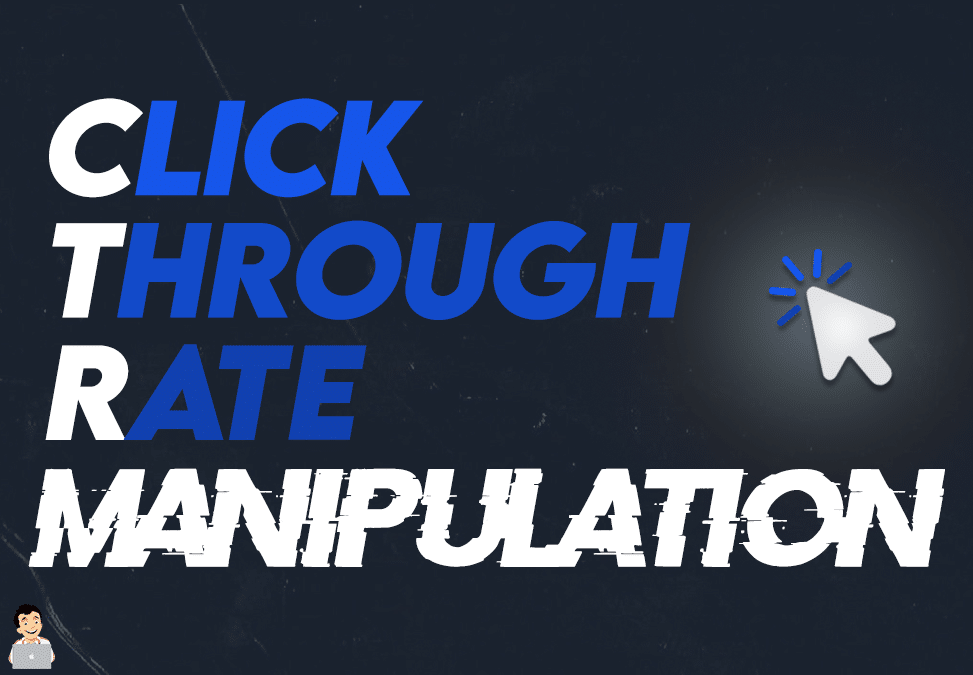Checking Out the Relationship Between CTR Control Solutions and Individual Behavior
In the realm of digital marketing, the influence of click-through rate (CTR) adjustment solutions on customer actions continues to be a facility and interesting subject. As on-line systems increasingly depend on CTR metrics to measure the success of web content, products, and services, recognizing just how these controlled rates impact individual involvement and decision-making processes is paramount. The interplay between CTR adjustment and individual habits increases questions about credibility, dependability, and the moral ramifications of such techniques. By dissecting the detailed partnership in between CTR manipulation services and user habits, interesting insights emerge that might reshape our understanding of digital advertising approaches and their results on customers.
Effect of CTR Manipulation on Habits
Analyzing the influence of Click-Through Rate (CTR) manipulation on individual habits exposes important understandings into the characteristics of online engagement. CTR adjustment involves artificially inflating the variety of click a specific link or ad to trick individuals and search engines. This method can cause an altered perception of a webpage's appeal or significance, inevitably affecting individual behavior.

Moreover, CTR control can alter the information utilized by formulas to individualize individual experiences. This can lead to customers being served material that does not line up with their choices or passions, inevitably leading to a decline in individual fulfillment and involvement. Comprehending the effect of CTR manipulation on customer habits is important for preserving openness and count on on the internet interactions.
Customer Involvement With Manipulated CTR
Individual interaction with controlled CTR data typically brings about manipulated perceptions of on the internet content popularity and significance. When individuals engage with material based upon synthetically filled with air Click-Through Fees (CTR), they may believe that certain information, products, or services are more popular or credible than they in fact are. This can cause customers making choices based upon deceptive data, resulting in potentially undesirable results.
Engagement metrics like likes, shares, remarks, and time invested in a webpage are typically affected by CTR adjustment. Customers might be a lot more likely to engage with web content that appears to have higher involvement prices, better bolstering the cycle of manipulated perceptions. As an outcome, web content makers and marketers may prioritize creating material that produces high CTR instead than More Bonuses focusing on developing genuinely important and pertinent material.

Psychological Effects of CTR Adjustment

Additionally, the mental effects of CTR adjustment can additionally materialize in altered decision-making procedures. Customers may be much more inclined to click material solely based upon its viewed popularity, instead than its actual worth or significance to their requirements. This behavioral change can cause a shallow engagement with on-line web content, where customers may overlook top quality yet less preferred offerings for go to this site those with unnaturally improved CTRs.
In essence, the emotional ramifications of CTR adjustment highlight the value of maintaining transparency and credibility in online communications to foster real user involvement and count on.
Moral Considerations in CTR Adjustment
CTR adjustment increases issues about tricking individuals, misshaping data analytics, and jeopardizing the reliability of online content. By synthetically blowing up CTR, individuals may be misled into clicking on links or advertisements they would certainly not have actually selected otherwise, leading to an insincere online experience.
An additional moral element to contemplate is the justness of manipulating CTR to acquire an unjust advantage over competitors. Taking part in such practices not just you can find out more breaches concepts of fair game but additionally weakens the count on that users position in on the internet platforms. It is vital for companies and electronic marketers to promote honest standards in their practices to guarantee transparency, trustworthiness, and long-term sustainability in the on-line atmosphere.
Effects for Digital Marketing
With the increasing dependence on digital systems for marketing functions, the practice of adjusting click-through rates (CTR) positions substantial implications for the performance and integrity of electronic marketing methods. CTR control can lead to skewed information analytics, misguiding marketers into thinking that their projects are carrying out far better than they actually are. This can lead to misallocation of sources, with companies investing in underperforming approaches based upon falsified CTRs. When users recognize that CTRs have actually been adjusted, it can erode count on in the brand, leading to long-lasting adverse repercussions for consumer commitment and brand name reputation.
Additionally, the use of CTR manipulation services can develop an unjust competitive landscape, where business that involve in such methods acquire a fabricated advantage over those that stick to ethical advertising and marketing criteria. This can stifle development and imagination in digital marketing, as success ends up being more concerning adjustment techniques than supplying real value to customers. Inevitably, the effects of CTR manipulation for electronic marketing prolong past short-term gains, impacting the total sustainability and credibility of marketing initiatives in the electronic realm.
Verdict
Finally, the partnership in between CTR control services and customer habits is complex and complex. The effect of CTR adjustment on habits, user involvement with adjusted CTR, psychological results, honest factors to consider, and ramifications for electronic advertising and marketing all play a role fit this connection. Understanding these characteristics is important for marketing professionals and researchers alike in order to browse the moral ramifications and take full advantage of the effectiveness of their digital advertising and marketing techniques.